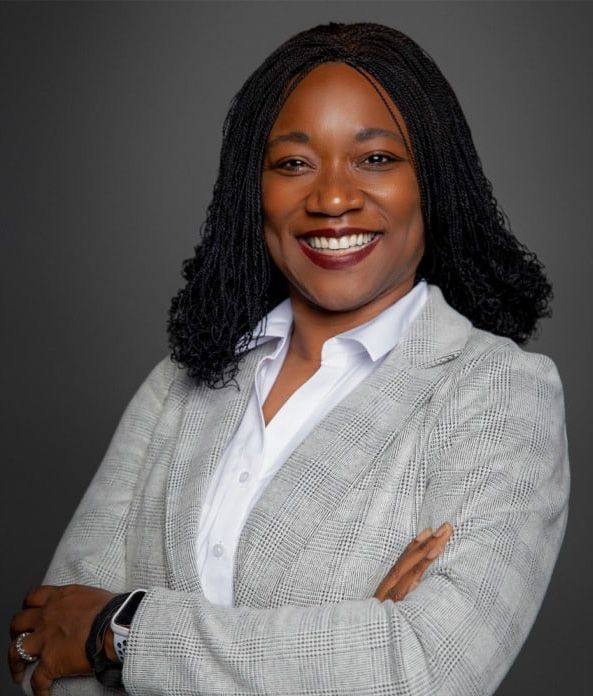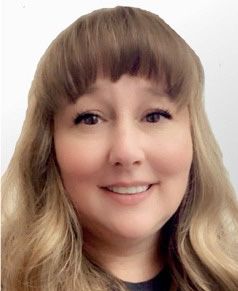Dr. Tiney Ray PhD, DNP, FNP-BC
Certified Independent Trainer · Dementia Behavior Health Consultant · Caregiver Life Coach
Dr. Tiney Ray is a dedicated healthcare professional with a wealth of experience in nursing and a passion for mental health. With over 30 years in the field of nursing and 20 years as a Nurse Practitioner, Dr. Tiney has worked across various specialties, but her heart lies in mental health care.
Having witnessed the impact of mental illness on close family members, Dr. Tiney is driven by the belief that no one should be left behind when it comes to receiving care, regardless of their location or challenges they may face. She emphasizes collaboration and togetherness in the medical community, recognizing that no single individual or agency can address mental health needs alone.
Dr. Tiney specializes in working with individuals living with dementia and their caregivers, drawing from her extensive experience with this population throughout her career. She advocates for understanding and exploring alternative approaches beyond medication to enhance the quality of life for her patients.
Outside of her professional life, Dr. Tiney is a devoted wife and mother of two grown sons. She finds joy in watching classic movies, with “Little House on the Prairie” being a favorite, and enjoys trying new activities and recipes as a plant-based enthusiast. One of her aspirations is to grow her own food, reflecting her commitment to healthy living and sustainability. Dr. Tiney finds inspiration in the words of Glennon Doyle Melton and is dedicated to making a positive impact on the lives of those she serves through her compassionate care and unwavering dedication to mental health advocacy.“I created Lyght Bulb Moments out of frustration when I worked as a nurse practitioner. I have worked with the senior population for over 28 years serving in Nursing Homes and Assisted Living Facilities. A primary diagnosis for this population is dementia. For some physicians, the first choice of treatment is to add medications. I believe there are often better ways to address dementia-related symptoms.
I believe we owe it to the person living with dementia (PLWD) to try an approach that does not involve adding another medication. So I’m passionate about improving the quality of life for people living with dementia and partnering with caregivers/medical professionals to develop strategies reducing or eliminating psychiatric medications most commonly used in dementia.
I earned my Bachelor’s degree as a Registered Nurse and my Master’s degree as a Family Practice Nurse from the College of New Rochelle. I then earned my Ph.D. in Public Health and Community Education and my Doctor of Nursing degrees from Walden University.
I am licensed as a Registered Nurse (RN) and an Advance Practice Nurse Practitioner (APRN).
I am a PAC Certified Independent Consultant PAC Certified Independent Consultant and PAC Certified Independent Trainer under Teepa Snow’s Positive Approach to Dementia Care. I am also a Certified DACE Coach and a Certified Virtual Dementia Tour Instructor.
I am a Visiting Professor at Chamberlain University and serve on the Adjunct Faculty at Capella University. I received the Stephen Shank Recognition Award that acknowledges the significant contribution made to learner success at Capella University. I have four published professional papers on patient care. I am a member of the American Association of Nurse Practitioners (AANP), Sigma Theta Tau Nursing Honor Society, United Advanced Practice Registered Nurse of Georgia (UAPRN), and The National Public Health Association."
Lyght Bulb Moment Foundation provides services and instruction including:
- Review of medication and medical history: A thorough examination of the medication list (prescription and nonprescription) as well as the medical history of the PLWD, which provides the caregiver with a comprehensive review of some potential problems.
- Learning how the aging process works: information about some of the conditions that are quite common as we age, and how a PLWD may be affected by them.
- The working and the broken brain: Understanding the different parts of the brain and the effects of those parts being damaged by this disease.
- Effective nurturing communications: practices to empower the caregiver to understand the person with dementia and to create mutual trust.
- The day vs the task: Practical lessons in helping the PLWD to emphasize independence and self efficacy.
- Managing challenges: Learning solutions to past problematic situations and experience effective ways to overcome difficulties.
- Collective effort: Exercises to demonstrate the effectiveness of a cooperative vs an independent approach of deliberating care.
Dr. Tiney Ray also volunteers with the Alzheimers Association local chapter as a caregiver support group facilitator and a virtual community educator.



